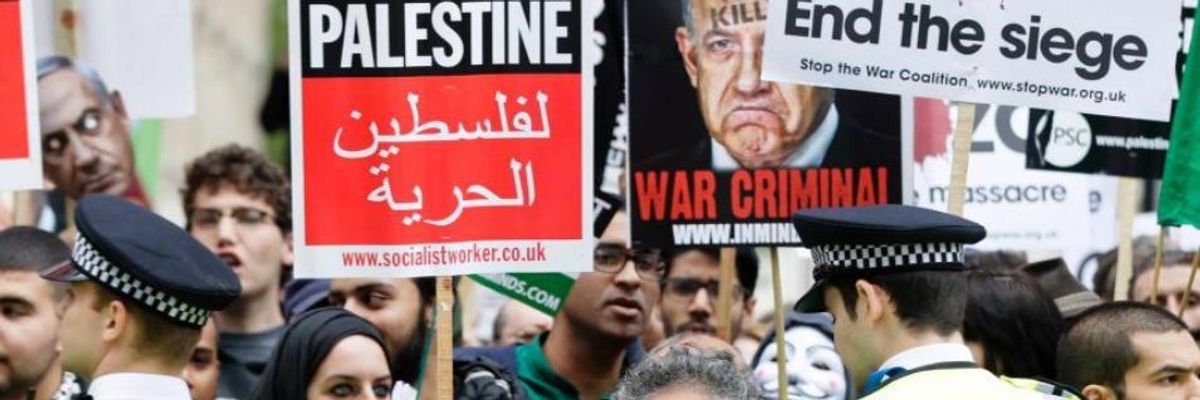The British government's move to outlaw boycotts, including those aimed at Israel, is being likened by critics to former Prime Minster Margaret Thatcher's support for apartheid South Africa.
Under the new plan, publicly-funded institutions that refuse to purchase goods and services from "unethical" companies will face "severe penalties," senior government sources told the Independent. The prohibition protects any company that is signatory to the World Trade Organization government procurement agreement, including those "involved in the arms trade, fossil fuels, tobacco products or Israeli settlements in the occupied West Bank."
Though details of the plan were first revealed in October, the Independent reports, "Significantly, and underlining the main target of the ban, the formal announcement will be made by the Cabinet Office minister Matt Hancock when he visits Israel this week."
Labour party leader Jeremy Corbyn is among those who has voiced opposition to the proposal, which he said amounts to an attack on local democracy.
"The Government's decision to ban councils and other public bodies from divesting from trade or investments they regard as unethical is an attack on local democracy," a Corbyn spokesperson told the press. "People have the right to elect local representatives able to make decisions free of central government political control. That includes withdrawal of investments or procurement on ethical and human rights grounds," the statement continued.
In practice, the ban imposes "Conservative Party policies on elected local councils across the board," Corbyn added, noting that the ban "would have outlawed council action against apartheid South Africa."
Rafeef Ziadah, a UK spokesperson for the Palestinian Boycott, Divestment, Sanctions (BDS) National Committee, said the ban will likely only strengthen the resolve to protest "unethical" activities and leave the UK government, once again, on the "wrong side of history."
"By undermining local democracy in service of Israel, [Prime Minister] David Cameron is standing on the wrong side of history just as Margaret Thatcher did with her support for apartheid South Africa," Ziadah said.
"Far from thwarting the growing public support for the Palestinian struggle for freedom, justice and equality, these measures simply shine a spotlight on the UK's deepening support for Israel's oppression of Palestinians."
The growing BDS campaign has increasingly been targeted by leaders of Israel-allied nations--including the UK, the United States, and Canada--which organizers say is evidence of its growing impact.
Councils in the UK hamlets of Leicester, Swansea, and Bristol are among the local bodies that recently passed resolutions in support of BDS or condemning companies involved in illegal Israeli settlements, though a number of those motions were non-binding and now threaten to be superseded.

